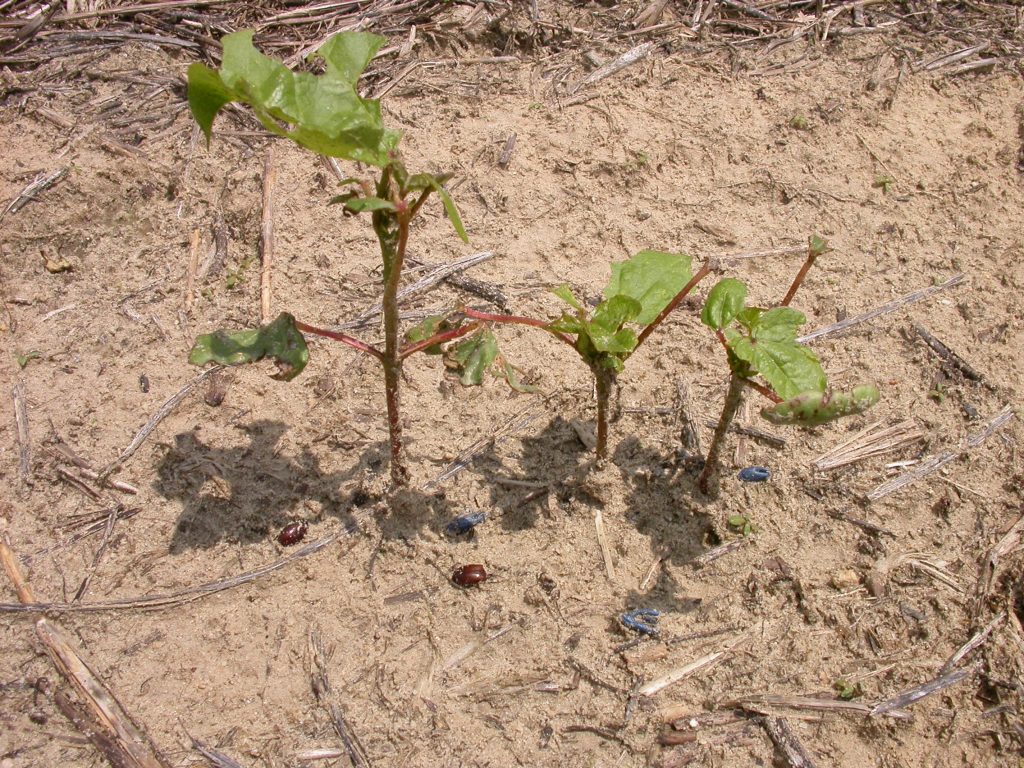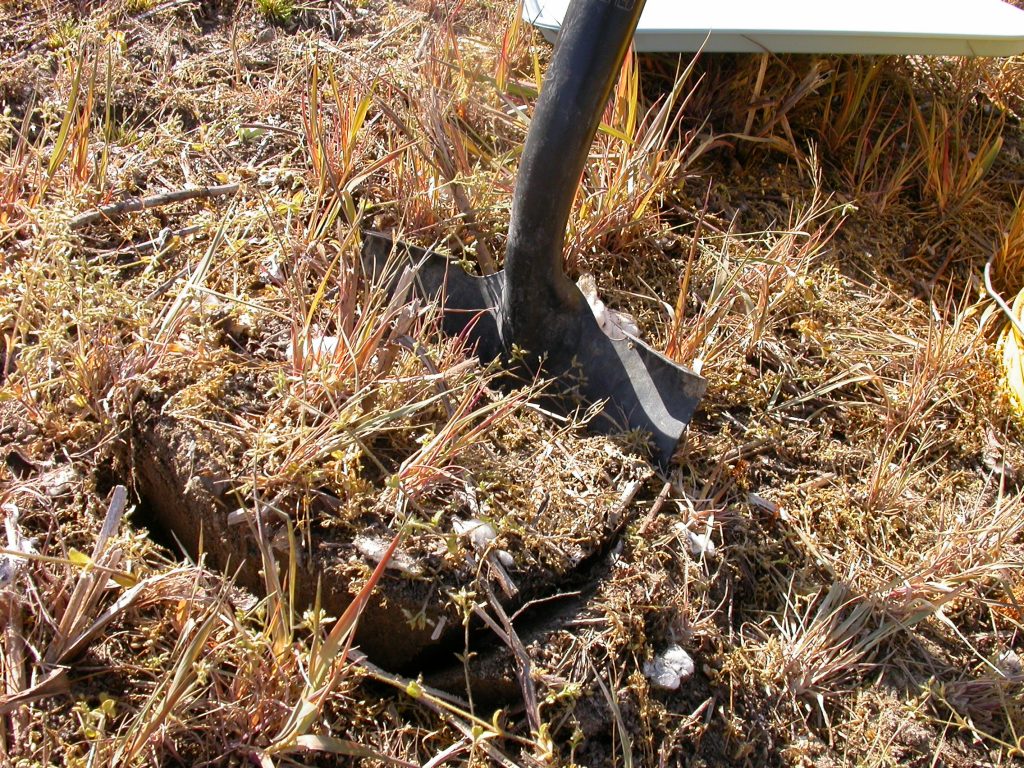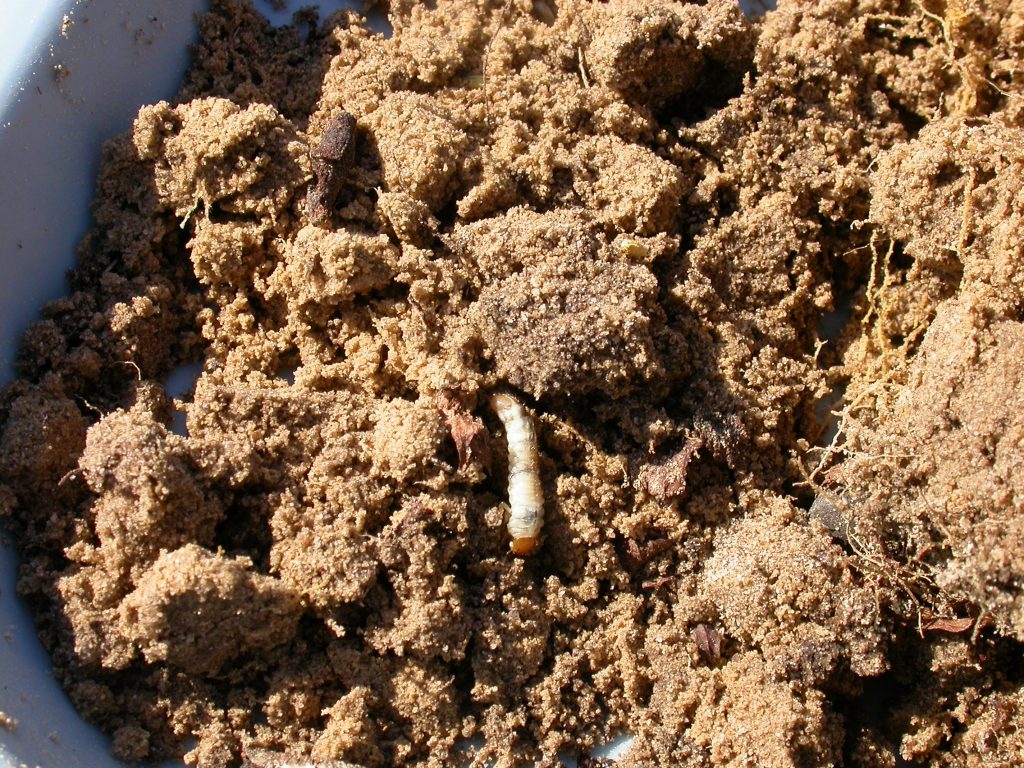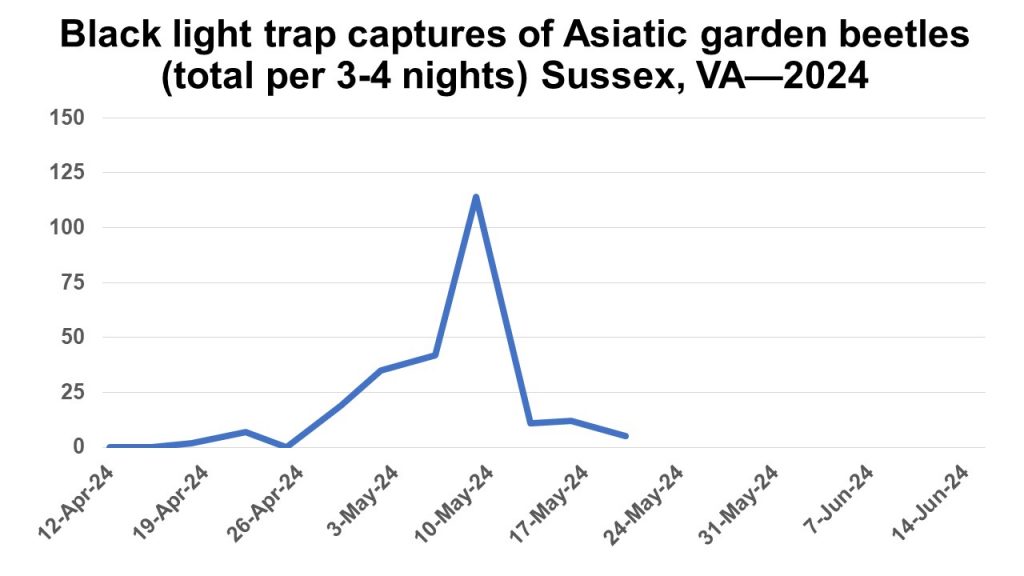In 2023 there were multiple, scattered reports of severe defoliation and/or death to cotton seedlings caused by Asiatic garden beetle (AGB) in Virginia and northeast North Carolina. Infested cotton areas varied in size, with some reaching 10 acres. AGB feed on roots (as grubs) and foliage (as adults) of many different host plants. The adults hide in the soil during the day and feed at night. AGB prefer sandy soil over heavier soil. When we visited the infested cotton fields, we often found AGB in the soil below weeds (e.g., marestail) and volunteer soybean plants.
This April the Tidewater Agricultural Research and Extension Center’s entomology program began sampling field “hotspots” from the 2023 season using soil samples, pitfall traps, and a black light trap. We found AGB grubs in soil samples from fields in Wakefield and Sussex County, VA, but did not find them in a northeast North Carolina field infested last year. AGB grubs can be differentiated from other white grubs by their “puffy cheeks.”
The black light trap is being operated in Sussex County, VA; it had a peak of 114 AGB adults (total per 3 nights) on May 9, 2024, followed by a sharp decline in captures. Other states have reported a single generation of AGB per season, but we plan to keep monitoring for several more weeks. We are still finding grubs and pupae in our soil samples. Pitfall traps placed in the field, designed to capture crawling adults (not flying due to cool temperatures), have not captured any AGB so far.
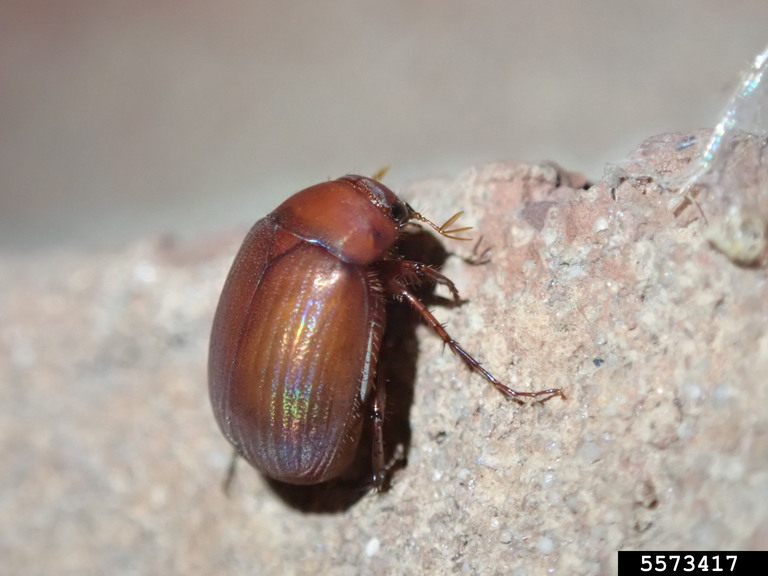
Cotton infestations and seedling injury from 2023 may have been due in part to cool May temperatures, keeping AGB adults on the ground, feeding in the cotton fields where they emerged; the cooler weather also limited cotton seedling growth.
We’ll provide further updates as we learn more. If you suspect an AGB problem in your seedling cotton, please feel free to reach out to me, or contact your county Extension Agent.
Acknowledgements: We are grateful for the financial support provided by Cotton Incorporated and the Virginia State Cotton Support Committee, and for the assistance provided by local cotton growers.

